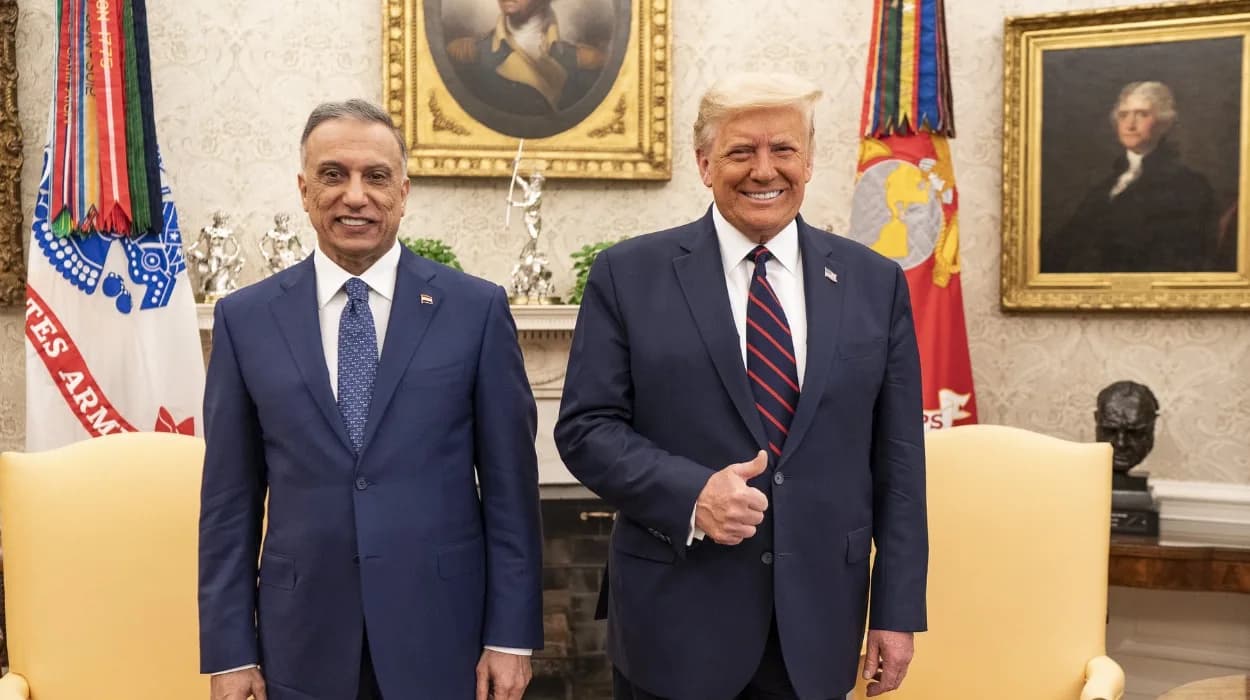The Trump administration has escalated efforts to pressure
the Iraqi government to sever economic and political ties with Iran, demanding
stricter controls over pro-Iranian militias and financial flows. This pressure
includes threats of sanctions, demands for judicial reforms, and actions to
restart Iraqi oil exports independently of Iran.
Trump Administration's Maximum Pressure Campaign on Iraq
As reported by The Soufan Center in February 2025, the Trump
administration, through National Security Presidential Memorandum 2 (NSM-2)
issued on February 4, solidified its intent to enforce "maximum
pressure" on Iran by targeting its influence in Iraq. The memorandum
explicitly calls on U.S. officials to prevent Iraqi dollar transactions with
Iran, blocking payments for Iranian electricity and natural gas supplied to
Iraq. This move effectively removes previous U.S. waivers that allowed such
financial transactions, intensifying economic isolation of Iran via its Iraqi
ties.
Officials from the Trump administration have urged Baghdad
to dismantle or integrate Iran-aligned militias into the formal Iraqi command
structure, cautioning against their continued independent activities. The key
militia groups of concern include Kata'ib Hezbollah, Asa'ib Ahl al-Haq, Harakat
Hezbollah al-Nujaba, Harakat Ansar Allah al-Awfiya, Kata'ib Sayyid al-Shuhada,
Kata'ib al-Imam Ali, and Liwa al-Tafuf, with the first two already designated
as Foreign Terrorist Organizations by the U.S. government.
Financial and Judicial Demands on Baghdad
According to The New Arab's sister publication Al-Araby
Al-Jadeed, the U.S. pressure on Iraq extends beyond militia control to demand
judicial reforms and tighter financial oversight. This approach aims to curb
Iranian influence within Iraqi state institutions that have traditionally
benefited from close economic and political ties with Tehran. One senior Iraqi
foreign ministry official revealed that U.S. authorities conveyed a
multi-sectoral campaign, involving possible sanctions on individuals and businesses
linked to Tehran, underlining the intensification of diplomatic pressure.
Oil Exports and Economic Levers
The Trump administration has also pushed for the reopening
of Kurdish-controlled northern Iraq oil exports. As noted by The Soufan Center,
after a two-year dispute between Baghdad and Erbil over oil export rights, U.S.
pressure reportedly including sanctions threats, compelled an agreement to
resume these exports. This move aims to make up for reduced Iranian oil sales,
especially to China, thereby mitigating disruptions in global oil markets
resulting from the U.S.'s Iran sanctions strategy.
Military Posture Regarding Iran-Aligned Militias
News from the Soufan Center further reveals that while the
Trump administration has not ruled out military action against Iran-aligned
militias in Iraq, it currently limits its approach to economic and diplomatic
pressures. The Trump government remains cautious about any direct military
engagement unless U.S. forces in Iraq face renewed attacks, following a relative
stand-down since the January 2025 Israel and Hamas ceasefire.
Recent Militia Designations by the U.S.
On September 18, 2025, Syriac Press cited the Trump
administration’s designation of four additional Iran-aligned militia
groups—Harakat al-Nujaba, Kataib Sayyid al-Shuhada, Harakat Ansar Allah
al-Awfiya, and Kataib al-Imam Ali—as Foreign Terrorist Organizations. This
marked an expansion to eight such groups under U.S. sanctions, aimed at
disrupting Iranian proxy networks in Iraq.
Impact on Iraqi Relations and Regional Stability
As reported by Chatham House in March 2025, Iraq faces a
delicate balancing act, caught between deep-rooted ties to Iran and dependence
on U.S. security and economic relations. The Trump administration’s demand for
Iraq to reduce Iranian influence places Baghdad in a challenging position amid
regional conflicts such as the Israel and Palestine dispute.
Energy and Economic Consequences
Iran International reported in September 2025 that
stepped-up U.S. sanctions have constrained Iraqi imports of Iranian energy,
following revocation of waivers that previously allowed Iraq to purchase
Iranian gas and electricity. This economic squeeze forms a part of the broader
maximum pressure campaign aimed at isolating Tehran and its allies.
The official White House briefings have reiterated President Donald Trump’s commitment to keeping Iran from acquiring nuclear capabilities and curtailing its regional influence. The administration views Iraq's alignment with Iran as a strategic vulnerability and a priority target for restrictions on financial transactions, militia activities, and economic cooperation.
